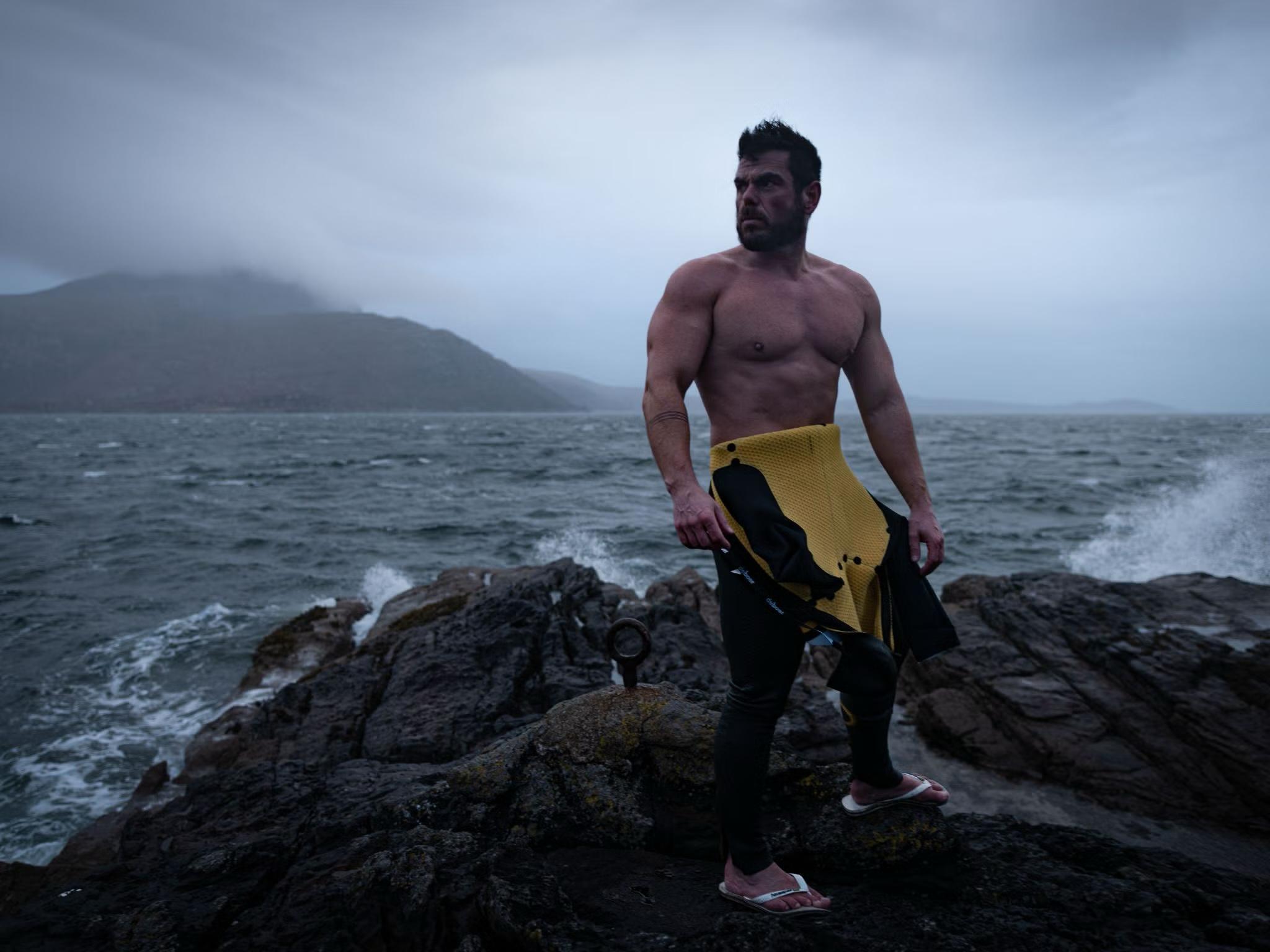Ross Edgley has once again etched his name in the history of extreme sports after completing a full circumnavigation of Iceland by swimming approximately 1,610 kilometers. On September 8, 2025, he announced that he had finished the expedition after four months battling some of the harshest waters in the world. This achievement is not only a new milestone as the first documented swim around Iceland but also a testament to how far human endurance can be pushed in open water.
The journey began in Reykjavík in mid-May 2025. Edgley and his team chose a clockwise route following Iceland’s rugged coastline. From the outset, he knew the obstacles: freezing waters, strong currents, and volatile weather. With the support of a dedicated boat crew and onshore team, he pursued an “assisted stage swim,” allowing rest at the end of each stage. While this format differs from traditional marathon swimming rules that prohibit thermal protection and staged breaks, the challenge demanded extraordinary physical stamina and meticulous planning at every step.
A perilous journey with precise strategy
The waters around Iceland are infamous for their extreme conditions. Hypothermic temperatures, towering waves, and even the possibility of encountering orcas were unavoidable risks. Edgley equipped himself with a full wetsuit, neoprene gloves, and specialized gear to maintain body temperature. Each day’s distance varied depending on wind direction and tides, making navigation critical. A miscalculated current could drag him far off course.
In interviews after finishing, Edgley emphasized that nutrition was just as vital as training. He required enormous daily calorie intake to sustain energy through relentless hours in the water. Balanced portions of protein, carbohydrates, and healthy fats kept his body functioning under extreme strain. His support team managed the logistics of food supply while also monitoring his medical condition across the expedition.
Observers were quick to compare this feat to his previous world-first swim around Great Britain in 2018. That journey took 157 days and covered nearly 1,800 miles. Iceland, however, posed different dangers. Its proximity to the Arctic Circle brought more unpredictable storms and harsher cold, making this new record an entirely unique test of endurance.
Scientific and environmental dimension
Edgley’s circumnavigation was not only a sporting endeavor. He integrated scientific research into the mission by collaborating with Icelandic research institutions and international universities. Each day he collected environmental DNA (eDNA) samples from the ocean. These samples are critical for mapping biodiversity and monitoring microplastics, both urgent concerns in marine conservation.
By the end of the expedition, he had collected more than one hundred eDNA samples, which scientists will now analyze to evaluate the health of marine ecosystems around Iceland. The team also filmed extensive visual documentation to raise public awareness about climate change and its impact on fragile marine habitats. This dual focus personal record and environmental contribution positioned the expedition as a blend of human endurance and scientific purpose.
Reactions and global significance
Edgley’s success quickly drew international attention. Sports media outlets, open-water swimming communities, and conservation organizations all highlighted the achievement. The open-water swimming association described it as the “first documented swim around Iceland,” while noting that official ratification is still pending. Even so, the accomplishment is widely regarded as a new benchmark, strengthening Edgley’s reputation as one of the most influential extreme swimmers of his generation.
From a sporting perspective, this record is expected to inspire other athletes to test their limits in the most challenging environments. From a scientific standpoint, the expedition’s data set will provide valuable insights into oceanography and conservation in Nordic waters. This proves that extreme sports can transcend personal ambition and generate knowledge that benefits the broader global community.
For Edgley, the swim around Iceland is not just the conclusion of another daring chapter. It also opens new discussions about how extreme expeditions can serve as platforms for education, awareness, and scientific collaboration. He has shown that personal ambition can coexist with broader contributions to society and the environment.
Ultimately, his story demonstrates that with discipline, innovation, and teamwork, humans can overcome some of the harshest conditions on Earth. Edgley’s accomplishment is not only a personal victory but also a reminder to the world of the importance of protecting oceans and marine ecosystems.
For more on international sports stories, be sure to read our latest Olam News coverage on the NFL’s expansion into South America and LeBron James’ basketball diplomacy in China.




